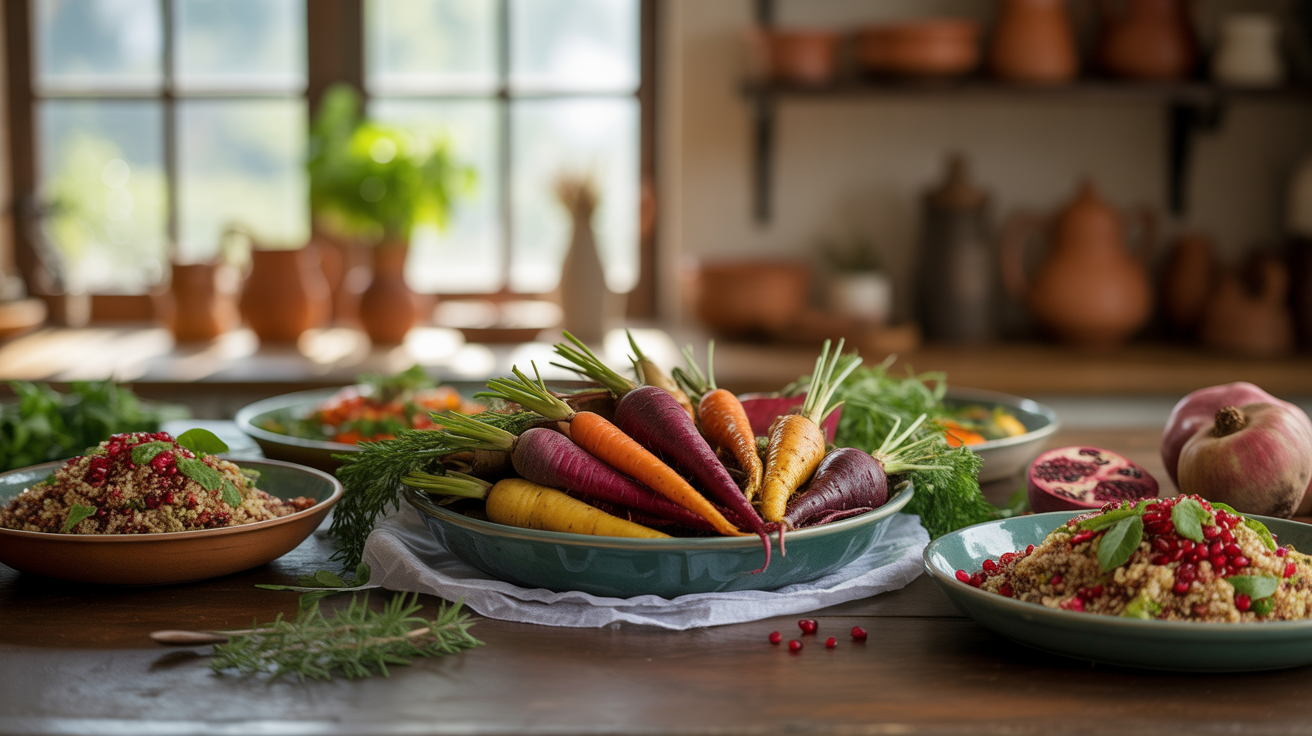
Welcome the harvest season with fresh flavors
As the bounty of autumn arrives, it’s the perfect time to embrace harvest recipes that celebrate seasonal fruits, vegetables, and grains. This article explores how home cooks and health-conscious food lovers can creatively experiment with harvest ingredients to craft vibrant, nutritious meals. We’ll dive deep into selecting fresh produce, balancing taste with wellness, and incorporating traditions with modern twists. Whether you’re seeking comforting dishes or light, nutrient-packed options, these recipes and tips will inspire your culinary journey through the richness of the harvest season.
Choosing the best harvest ingredients for your kitchen
Harvest season typically offers an abundance of root vegetables, pumpkins, squashes, apples, pears, and hearty greens. To maximize flavor and nutrition, prioritize locally sourced and organic produce. When you choose seasonal ingredients at their peak ripeness, you not only support sustainable agriculture but also gain fresher, more nutrient-dense food.
Here’s a quick guide to key harvest staples and their nutritional highlights:
| Ingredient | Seasonal availability | Key nutrients | Health benefits |
|---|---|---|---|
| Butternut squash | September–November | Vitamin A, fiber, potassium | Supports eye health, aids digestion, reduces blood pressure |
| Apples | August–October | Vitamin C, antioxidants, fiber | Boosts immune system, promotes heart health |
| Kale | Fall to early winter | Vitamins K, A, C, calcium | Bone health, anti-inflammatory effects |
| Carrots | Year-round, peak in fall | Beta-carotene, fiber, vitamin K | Improves vision, supports skin health |
Creating balanced harvest dishes: flavor meets nutrition
One of the joys of harvest cooking is the natural harmony between robust flavors and nourishing ingredients. Combining sweet, earthy, and savory profiles can elevate meals while providing health benefits. For example, pairing roasted root vegetables with cooling yogurt-based sauces adds probiotics alongside fiber, enhancing gut health and taste complexity.
Try these ideas for balanced harvest meals:
- Roasted butternut squash salad with arugula, toasted walnuts, and a maple vinaigrette
- Spiced apple and kale stew enriched with cinnamon, garlic, and fresh herbs
- Carrot and ginger soup topped with a dollop of Greek yogurt and fresh parsley
Tips to retain nutrients while cooking
To preserve the full nutritional value of your harvest ingredients:
- Avoid overcooking vegetables; steaming or roasting helps retain vitamins
- Use minimal water when boiling to prevent nutrient loss
- Incorporate raw or lightly cooked items where appropriate, such as fresh salads
Experimenting with harvest recipes: from tradition to innovation
Harvest season invites creativity. While honoring time-tested recipes, don’t hesitate to add modern twists that suit your wellness goals and palate. For instance, swapping heavy cream for coconut milk in a pumpkin soup can add richness without excessive saturated fat. Or, introduce ancient grains like quinoa or farro to harvest grain bowls for added protein and fiber.
Explore international harvest inspirations:
- Moroccan spiced pumpkin tagine with chickpeas and raisins
- Italian farro salad with roasted root vegetables and kale pesto
- Sweet potato and black bean tacos with homemade salsa verde
These combinations celebrate the season’s abundance while supporting a balanced diet that feeds body and soul.
Planning your harvest meal prep for wellness and time savings
Balancing a busy lifestyle with nutritious cooking is easier when you plan ahead. Harvest recipes often lend themselves to batch cooking or easy weekday meals. For example, roasting a variety of vegetables in one go can serve as the base for salads, soups, or grain bowls throughout the week.
Benefits of harvest meal prepping include:
- Reduced food waste: Use versatile ingredients in multiple ways.
- Improved nutrition: Ready-to-eat veggies prevent reliance on processed snacks.
- Time efficiency: Less daily cooking stress while enjoying fresh meals.
Registered dietitians’ meal prep tips provide valuable insights for blending wellness with flavor in your harvest creations.
Conclusion: savor the season with mindful harvest cooking
Harvest recipes are more than just meals; they are an invitation to connect with nature’s rhythms and nourish both body and creativity. By carefully selecting seasonal ingredients, balancing flavors with nutrition, and welcoming innovation alongside tradition, you can transform your kitchen this season. Experiment with vegetables, fruits, and whole grains to create exciting, wholesome dishes that meet your wellness goals without compromising on taste.
Whether you’re a passionate foodie or focused on healthy living, these recipes and strategies offer a simple path to celebrate the harvest’s abundance. Embrace meal prepping and thoughtful cooking techniques to enjoy fresh, nutrient-dense meals that fuel your lifestyle.
For further inspiration and seasonal recipes, visit Whole Foods Market recipes and Food Network’s fall harvest collection.
“Autumn is the hush before winter’s symphony; let your kitchen be filled with its rich, nourishing song.”
